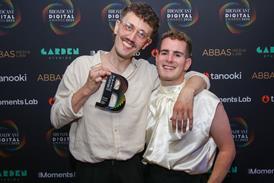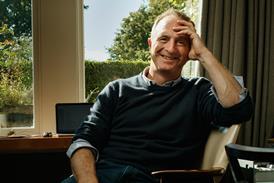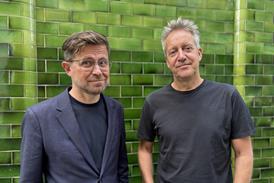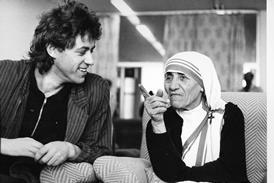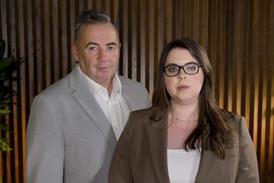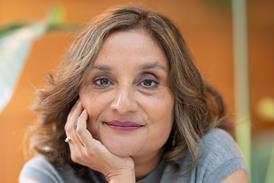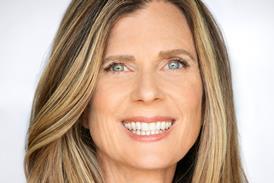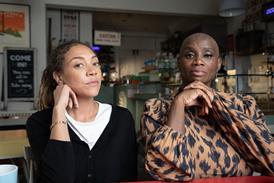Features – Page 51
-
 The Broadcast Interview
The Broadcast InterviewAaqil Ahmed, BBC head of religion and ethics
The BBC head of religion tells Katherine Rushton why the row over his appointment is trivial, how class is more crucial than race and what he plans to do with Songs Of Praise.
-
 The Broadcast Interview
The Broadcast InterviewMarc Watson, BT Vision
BT Vision chief executive Marc Watson is confident that he can revive the fortunes of the broadband service, but accepts that sport plays a crucial part.
-
 The Broadcast Interview
The Broadcast InterviewJana Bennett, BBC Vision
Director of BBC Vision Jana Bennett talks about BBC bashing, shifting production to the nations and regions and the reasoning behind the Strictly/X Factor scheduling clash.
-
 The Broadcast Interview
The Broadcast InterviewHilary Salmon, BBC executive producer
Executive producer Hilary Salmon may be rather reserved, but she’s the woman behind the corporation’s noisiest dramas. Katherine Rushton finds out why she has a lot to shout about.
-
 The Broadcast Interview
The Broadcast InterviewRichard Klein, BBC4
He’s been a postman, a bank clerk, a print journalist and spent a week partying with the Happy Mondays. Katherine Rushton talks to maverick BBC4 controller Richard Klein.
-
 The Broadcast Interview
The Broadcast InterviewDavid Abraham, UKTV
UKTV chief executive David Abraham tells Chris Curtis why distinctive brands, not generic labels will achieve cut-through, and why the gap between pay-TV and terrestrial is closing.
-
 The Broadcast Interview
The Broadcast InterviewRichard Deverell, BBC Children's & BBC North
BBC Children’s and BBC North’s Richard Deverell speaks to Katherine Rushton about catering for teenage audiences, disability ‘box ticking’ and stepping into the DG’s shoes
-
 Behind The Scenes
Behind The ScenesBop Box, C5
Exec Jessica Symons explains how the team found their dancing feet on a shoestring budget.
-
 The Broadcast Interview
The Broadcast InterviewSir Michael Lyons, BBC Trust
Whether it’s the licence fee, Lonely Planet or Wossy’s big mouth, the BBC Trust is criticised outside as well as within the BBC. How does its chairman manage?
-

-
 The Broadcast Interview
The Broadcast InterviewBen Stephenson, controller, BBC drama commissioning
The BBC’s top drama commissioner is happy to engage with his critics but won’t be deflected from offering shows that appeal to all audiences.
-
 The Broadcast Interview
The Broadcast InterviewBal Samra, BBC
The man who takes care of business at the BBC tells Chris Curtis how a mixture of new technology and a change of mindset could help the whole industry save and survive.
-
 The Broadcast Interview
The Broadcast InterviewAndy Duncan, Channel 4
Channel 4’s boss tells Robin Parker that the BBC must give commercial PSBs a break if a “mixed ecology” is to continue funding creative programming.
-
 The Broadcast Interview
The Broadcast InterviewLaura Mackie, ITV Drama
The director of ITV Drama talks to Kate McMahon about budgets, bonnets and why she’s still on the lookout for ideas that are ambitious and different.
-
 The Broadcast Interview
The Broadcast InterviewJeremy Darroch, BSkyB
As BSkyB celebrates 20 years, its chief executive talks to Robert Shepherd about how teamwork and a willingness to take risks help it keep pace with a fast-changing market.
-
 The Broadcast Interview
The Broadcast InterviewMark Thompson, BBC
The BBC’s director general talks to Emily Booth about shaping the digital future, wrestling with editorial standards - and why slicing up BBC Worldwide is a very bad idea.
-
 The Broadcast Interview
The Broadcast InterviewLorraine Heggessey, BBC1
She has turned around a BBC1 struggling against an ascendant ITV and the rise of multichannel to make it the UK’s favourite channel - Lorraine Heggessey tells Leigh Holmwood how she intends to build on this success and why experimentation is worth the ris
-
 The Broadcast Interview
The Broadcast InterviewRupert Gavin, BBC Worldwide
BBC Worldwide chief executive Rupert Gavin presides over a global empire of television, publishing and music interests. He talks to Conor Dignam about the Communications Bill and why he has no truck with those who cry foul over the success of his business
-
 The Broadcast Interview
The Broadcast InterviewBarry Cox, Channel 4
Channel 4 deputy chairman Barry Cox made waves when he called for the licence fee to be scrapped and Sky to be broken up. Here he outlines his vision for the future and tells us why he objects to being known as ‘the government’s digital tsar’.


